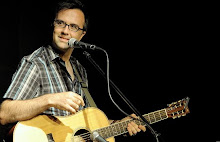"Boom Boom" by the Yardbirds. A nice document of the band as a cohesive unit. Some of the live clips on YouTube are rather dire. The weak link, to me, is Keith Relf, the singer/harmonica player of the band. While his limitations as a singer are readily apparent in the live clips, his harmonica playing is somewhat better.
The British blues rock boom yielded, in my opinion, few truly great native English blues singers. Those few that come to mind for me are Van Morrison (though he's technically Irish) and Mick Jagger. And by blues I don't mean necessarily the blues form or the blues repertoire, but the mode of singing practiced by certain African-American musicians starting around 1900 that was derived from slave work songs, and Islamic prayer chanting before that, in the Muslim areas of West Africa that supplied the slave trade. We're talking about a significant degree of cultural difference from suburban England in the 1960s. As a blues singer, Relf is just passable, but as a more waiflike version of Brian Jones, he's got the look of English rock in the mid 60s.
The Yardbirds again, with "Louise" from 1963. Clapton is fleet with a variety of authentic blues licks, yet his performance is somewhat mannered - there is flash lick after flash lick, but little of his later restraint.
And the one that according to rumor served as the final straw to Clapton's dissatisfaction with the musical direction that the Yardbirds were taking. The main issue seems to have been that the tune was composed by pop hack Graham Gouldman, who also wrote for Herman's Hermits and the Hollies. The trendiest element of the record is the harpsichord, here represented by Jeff Beck's acoustic guitar with metal soundhole pickup. Other than that, it sounds structurally at least like blues-rock-pop of the London ilk, circa 1965. There's a good documentary clip here, featuring surviving Yardbirds Chris Dreja, Jim McCarty and Eric Clapton.
"All Your Love" from the Bluesbreakers' 1966 album, nicknamed "Beano". Clapton was featured in this band, and better represented than ever before. His cult in London had built up to this point, fed by his studied virtuosity and cool charisma. Clapton had by now traded his Tele and Vox AC30 for a 1960 Gibson Les Paul and Marshall combo.












No comments:
Post a Comment